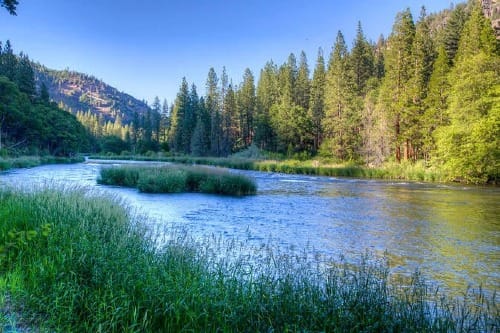Oregon Supreme Court Rules Against Youth In Climate Case, But Chief Justice Pens Dissent Saying Judicial Branch "Has A Role To Play" In Addressing Climate Crisis

In a divided ruling issued on October 22, the Oregon Supreme Court decided the state of Oregon does not have a duty to protect its vital natural resources such as the atmosphere and water under a legal theory called the public trust doctrine in the face of the climate crisis. The long-awaited decision comes in a lawsuit, originally filed in 2011, by Oregon teens Olivia Chernaik and Kelsey Juliana against the state government over climate change and environmental degradation.
This case is one of a handful of pending legal challenges at the state level brought by young people against their government seeking to compel more aggressive action on climate change that is guided by climate science. These climate cases have faced an uphill battle and have mostly been dismissed.
While the Supreme Court majority ruled against the youth plaintiffs in the Oregon case Cherniak v. Brown, Chief Justice Chief Justice Martha Walters wrote a dissenting opinion arguing that the court should not shirk its responsibility to determine violations of law even if a case involves a complex issue like climate change.
“The complexity of an issue may make a judicial decision more difficult, but it does not permit this court to abdicate its role,” Justice Walters wrote.
The Oregon youths’ case is grounded in the public trust doctrine, a legal principle dating back to Roman law establishing that certain natural resources are held in the “public trust” for enjoyment by all and that the state as sovereign as an obligation to protect these resources. The youths argued that Oregon must be held accountable for protecting its natural trust resources, including water, wildlife and the atmosphere, from climate change that disproportionately imperils younger generations. Plaintiffs sought a court order declaring that Oregon is violating its public trust duty and requiring the state government to implement a science-based climate recovery plan to reduce greenhouse gas emissions.
Oregon’s Supreme Court took up the case following a ruling by the Court of Appeals in January 2019 determining the public trust doctrine imposes no affirmative duty on the state to protect natural resources. A hearing took place before the state’s highest court in November 2019 and nearly a year later the court issued its decision, ultimately affirming the ruling by the Court of Appeals.
The Supreme Court majority rejected the plaintiffs’ claim that the public trust includes resources beyond navigable waters and submerged lands, though the court did say the doctrine may evolve to become more expansive in the future. Justice Walters in her dissent argued the court shouldn’t sit back and wait, writing: “the time is now.”
The majority further concluded that the public trust doctrine does not impose a duty on the state to protect its natural resources in the way the plaintiffs argue it does. Justice Walters again disagreed and explained that the majority had misinterpreted or reframed the plaintiffs’ argument to reach their conclusion.
The chief justice plainly asserted that courts have a role to play in addressing climate harms.
“How best to address climate change is a daunting question with which the legislative and executive branches of our state government must grapple,” she wrote. “But that does not relieve our branch of its obligation to determine what the law requires.”
“The dissent by Chief Justice Walters is written as a majority opinion,” University of Oregon Law Professor Mary Wood, a public trust law expert, said in a press release responding to the decision. “It clearly illuminates the constitutional duty of the courts to hold the political branches accountable — which is paramount before those branches walk this nation over the climate cliff.”
Courtney Johnson, an attorney for the plaintiffs, said they are “considering a petition for rehearing in light of the majority’s mischaracterization of our case and the errors of law addressed by the Chief Justice.”


